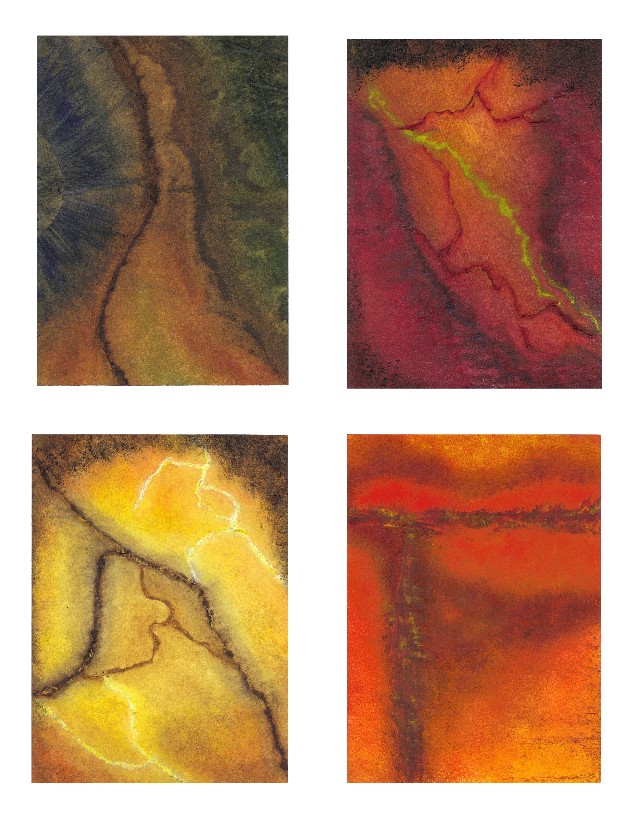by David Wolf
_
the wild dogs of Santiago
the sleeping dogs of Santiago
the Andes disappearing into lavender haze
~
smoke pouring from the palace—
“you and your pisco-washed plowings”
Dreamt an amaranthine bloom adrift—
as autumn’s ore unearths itself once more
A huaso stomp wakes me
from my facsimile of ease—
I was once fierce as
the Valley of the Moon
Now I’m coco loco
trailing the horsefly’s glint, the prawn’s shadow
Call me a taxi
while the lamb trembles beneath the volcano
My old ideas splay, a fern,
a dead fern and
I’ve no ray of ministry
to distress the long queue of grief
Sure, I’ll lead the coalition
of trash
Tip the potter,
don’t tip the potter
In a thin country
wearing your summer fat
dream a razor clam or two
for me
~
Wacky trident of a
lone cactus shooting up
from the sloped vineyard—
“Syrah, Syrah, glamorous nymph with an arrow and bow”
~
Humbolt Air
Noon autumn light
peach-veiling
the village across the bay
and the stilted feet
free to flee to their resurrected cribs
(terror of quicksand glowing through the mesh)
I fill the pitcher I requested from the hotel maid with amused swirls of disappointment
The giant sugared rock in the sea below my window
is not a cream puff—
“that’s seagull shit”
draping it
Night will kill off more castings—
I’ll sleep
till the ocean lines
blue dawn
David Wolf is the author of three collections of poetry: Open Season, The Moment Forever, and Sablier. His work has appeared in The Hampden-Sydney Poetry Review, Hiram Poetry Review, New York Quarterly, Poet & Critic, River Styx Magazine, and numerous other literary magazines and journals. He lives in Des Moines, Iowa, and teaches writing and literature at Simpson College.


